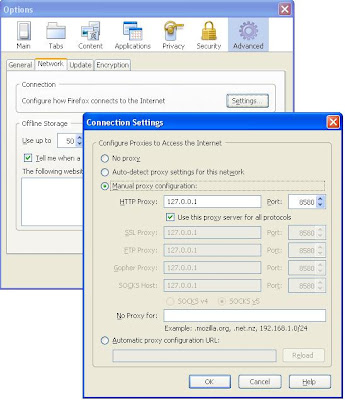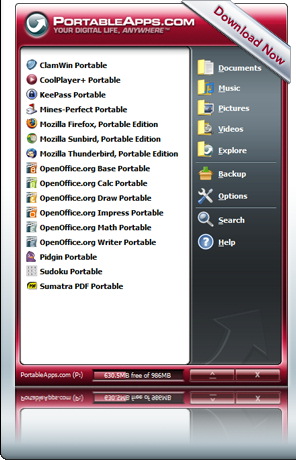
A very interesting software for all you laptop owners out there to try out is Adeona (Name of the Roman Goddess of safe return!), a free and open source tracking software. But before you get excited, know that this is not a foolproof method of protecting your laptop. In fact, if your laptop is really stolen with adeona already installed, I don't think it will be able to help you recover your laptop because of the current networking technology available in Sri lanka. But once that situation improves, this software can come in handy.
Adeona tracks the location of your laptop by recording its internet connection information, such as the IP address of your laptop, addresses of nearby routers, and also the names of nearby access points (for wireless connections only). This information, once collected, is encrypted, and then stored in the OpenDHT system.
Adeona installs two softwares to your computer. One is a client program which, at random times, sends the internet connection information to OpenDHT. The other is the retrieval software through which you can retrieve the stored information. In order to retrieve the information, the software uses a file called an Owner Recovery File (extension .ost) which is generated when adeona is installed. This file is of great importance as without it, retrieval of the information is impossible, even for the rightful owner. The recommended method of using adeona is to install the client on the laptop, backup the created .ost file to a USB pen or other medium which is secure, and delete the original file from the laptop. If the laptop is stolen, you can use the ost file and the retrieval software from any other PC in the world.
As you can see, a good networking system is required for this software to be effective. In western countries, where internet connections are readily available, and wireless hotspots are in abundance, this software is pretty useful. But here in Sri lanka, without such technology, adeona is limited in what it can do. But still, like I said, in the future, when these technologies are implemented (eventually), adeona is sure to become a very useful tool.
I installed adeona on my desktop computer, and after a couple of days, I tried retrieving my location information. Here is a sample.
info: ======== start location data =========
update time: 08/28/2008,19:09 (PST)
internal ip: 192.168.1.2
external ip: ---.---.---.---
access point: (n/a)
Nearby routers:
1 0.000ms 192.168.1.1 (could not resolve)
2 23.000ms 220.247.232.7 (could not resolve)
3 24.000ms 220.247.193.249 (could not resolve)
4 23.000ms 222.165.130.241 (could not resolve)
5 23.000ms 222.165.130.10 (could not resolve)
6 72.000ms 217.6.48.33 (could not resolve)
7 281.000ms 62.154.14.98 (could not resolve)
8 0.000ms 62.156.138.70 (could not resolve)
9 327.000ms 67.17.108.165 (te1-2-10G.ar2.MAD1.gblx.net)
10 348.000ms 67.17.108.165 (te1-2-10G.ar2.MAD1.gblx.net)
11 456.000ms 162.97.119.18 (could not resolve)
12 479.000ms 130.206.250.26 (NAC.XE1-0-0.EB-Barcelona0.red.rediris.es)
13 473.000ms 130.206.202.30 (cesca-router.rediris.es)
14 474.000ms 84.88.18.18 (upc-anella.cesca.es)
Quite interesting information (I've blanked out my external IP for obvious reasons). The first entry under nearby routers is an internal address. The second entry is the gateway address given by SLT. An although I'm not sure on this, I think entries 3, 4, and 5 all are gateway addresses of SLT. About 7 entries couldn't be resolved into domain names (because they don't have domain names). Entries 7 and 8 belong to a one Deutsche Telekom AG, the largest telecommunications company in Germany and the EU, while number 12 is somewhere in Spain.
Most of this information is repeated throught the retrieved location information, since I am using my desktop computer to run the program. The program can be truly tested only on a laptop, which changes location often, and has a good internet connection. If anyone does carry out this, please drop in a comment with your observations.
Grab the software from the Adeona website.
























